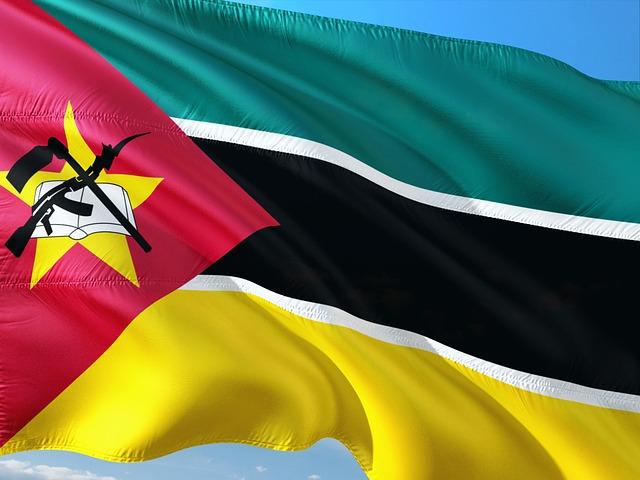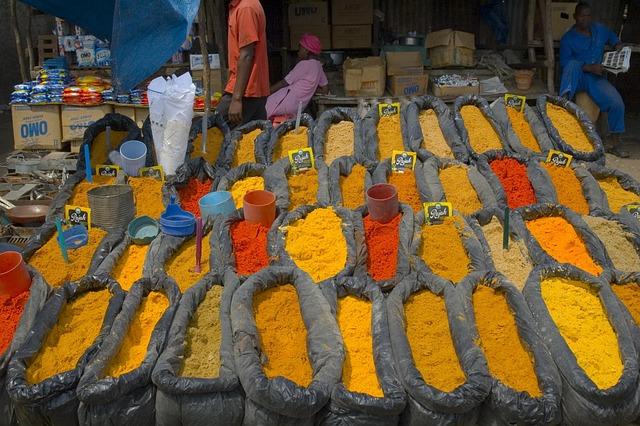In a concerning escalation of violence and human rights violations, Mozambique finds itself at a critical juncture as reports of police killings and assaults on peaceful assembly surge across the nation. Amnesty International has raised an urgent call too action for the Southern African Development Community (SADC) to adopt a robust stance against these alarming trends.With the nation grappling with a deteriorating security situation, the implications for civil liberties and the right to peaceful protest are dire. This article delves into the current state of human rights in Mozambique, the role of law enforcement in undermining public safety, and the imperative for regional bodies to intervene and uphold the tenets of justice and accountability in the face of growing state-sponsored violence.
Mozambique’s Escalating Crisis: An Overview of Police Violence and human Rights Violations
The situation in Mozambique has reached a critical juncture as communities witness an alarming rise in police violence, which is further exacerbating human rights violations. Reports indicate an increase in incidents of police brutality, characterized by unjustified killings, assault on peaceful protesters, and excessive use of force. The authorities’ disregard for the right to peaceful assembly not only undermines basic freedoms but also perpetuates a climate of fear among citizens.Human rights defenders have documented several cases where individuals simply exercising their rights have faced severe backlash from the police.
This escalating crisis is not solely a domestic issue; it has significant implications for regional stability and international human rights standards. The Southern African Development Community (SADC) must intervene decisively to address these abuses. key actions that should be considered include:
- Public condemnation of police violence and human rights violations.
- Imposing sanctions on officials responsible for such actions.
- Establishing monitoring mechanisms to track police conduct.
- Supporting local civil society organizations advocating for human rights.
Failure to act could embolden further abuses and set a troubling precedent for governance in the region, where democratic principles are already under threat. The situation calls for immediate attention from not only SADC but also the international community,to restore the dignity and rights of Mozambique’s vulnerable populations.
The Role of SADC: Urgent Actions needed to Address Systemic Abuse in Mozambique
The Southern African Development Community (SADC) is at a critical juncture regarding its responsibilities toward member states experiencing systemic abuses, particularly in Mozambique. As reports of escalating police violence and suppressive tactics against demonstrators continue to surface, SADC’s intervention is crucial. The organization must unequivocally condemn these violations and adopt decisive measures, such as:
- Issuing strong statements that demand accountability from the Mozambican government.
- Facilitating self-reliant investigations into incidents of police killings and assaults on civilians.
- Promoting dialog with civil society to empower communities facing repression and to bolster human rights advocacy.
Moreover, the challenge extends beyond immediate responses; SADC must also establish a long-term strategy aimed at reinforcing democratic principles and human rights across the region. This strategy could encompass the following components:
| Action Item | Description |
|---|---|
| Capacity Building | Enhancing the capability of local human rights organizations through training and resources. |
| Monitoring Mechanisms | Establishing regular monitoring of police conduct and governmental actions to ensure accountability. |
| Regional Solidarity | Fostering collaboration between member states to share best practices in human rights protections. |
By taking these actions, SADC can help to restore faith in governance within Mozambique and support the urgent demand for justice and human rights.The expectation for a decisive and unified response from the SADC community could prove vital in combatting the culture of impunity that has taken root, ultimately safeguarding the rights of all Mozambicans.
Amnesty International’s Findings: A Deep Dive into Police Killings and Assault on Civil Rights
The recent report by Amnesty International sheds light on the alarming rise in police killings and the increasing threats to civil rights in Mozambique. The organization highlights a disturbing trend where excessive use of force has become a norm for law enforcement, often targeting peaceful protesters exercising their right to assemble. Instances of severe brutality and unlawful killings are reported, creating an atmosphere of fear among citizens. Amnesty’s findings underscore the urgent need for the Southern African Development Community (SADC) to intervene decisively, advocating for accountability and reform within Mozambique’s policing system.
Key statistics from the report illustrate the gravity of the situation:
| Year | Reported Police Killings | Assaults on Protesters |
|---|---|---|
| 2021 | 42 | 120 |
| 2022 | 58 | 150 |
| 2023 | 64 | 180 |
Amnesty International’s complete analysis brings to light the voices of victims and their families, frequently enough silenced in the discourse surrounding public safety. They call for the SADC to take a firm stance against such violations by:
- Performing independent investigations into reported abuses
- Implementing training programs focused on human rights for law enforcement
- Supporting civil society in advocating for peaceful assembly and protest rights
Recommendations for Immediate action: Strengthening Protections for Peaceful assembly and Protest
To effectively address the alarming trend of police killings and assaults on peaceful gatherings in mozambique, it is indeed crucial for the Southern african Development Community (SADC) to adopt a comprehensive set of recommendations aimed at enhancing the rights to peaceful assembly and protest. SADC Member States must:
- Implement legislative reforms that safeguard the right to peaceful assembly, ensuring that laws align with international human rights standards.
- Enhance police training to emphasize respect for human rights during crowd control operations and to establish clear guidelines for engaging with protesters.
- Establish independent oversight mechanisms to monitor police actions during protests, providing accountability for any unlawful use of force.
- Facilitate dialogue between civil society organizations and state authorities to create an surroundings of trust that promotes peaceful expression of dissent.
Moreover, SADC should actively promote awareness campaigns to educate the public and law enforcement officials about the importance of the right to peaceful assembly. By fostering a culture of respect for civic space, the regional body can play a pivotal role in curbing violence and abuses by state actors. This can be achieved through:
- Creating community workshops that highlight the rights of individuals to assemble peacefully without fear of reprisals.
- Establishing reporting mechanisms for victims of police violence to share their experiences and seek justice, ensuring that these reports lead to actionable outcomes.
- Building coalitions of support among regional and international human rights organizations to amplify advocacy efforts aimed at changing government policies.
International Response: The Importance of Global Solidarity in Combating Human Rights Abuses
The recent surge in police killings and violent suppression of peaceful protests in Mozambique calls for an urgent and unified response from regional bodies and the international community. Solidarity among nations, particularly within the Southern African Development Community (SADC), is essential to establish a comprehensive approach that not only condemns these abuses but also holds perpetrators accountable. Countries must leverage their diplomatic relations to exert pressure on the Mozambican government and urge it to respect the fundamental rights of its citizens. Collective actions,such as imposing sanctions or adopting joint resolutions,can amplify the voices of human rights defenders who are increasingly putting themselves at risk to challenge the state’s oppressive tactics.
Furthermore, global solidarity underscores the relevance of collaborative efforts in supporting civil society organizations and promoting awareness on the ground. Engaging with a wider network of human rights advocates can provide necessary resources and skills to those working tirelessly within Mozambique to document abuses and mobilize public support. It is indeed vital to maintain open channels of interaction and share best practices among nations facing similar challenges. The creation of platforms for dialogue that encompasses law enforcement, civil society, and international observers can foster transparency and ensure that human rights considerations remain at the forefront of national and regional policies. The fight against human rights violations is not solely a national responsibility but a shared commitment that transcends borders.
Future Prospects: A Call for Accountability and Reform in Mozambique’s Police Force
The escalating violence within Mozambique’s police force has raised urgent calls for comprehensive reforms and accountability mechanisms. Amid reports of increased police killings and violations of the right to peaceful assembly, the Southern African Development Community (SADC) is urged to confront this troubling trend head-on. Civil society organizations and humanitarian groups must advocate for change, emphasizing the need for clear investigations and appropriate legal consequences for those involved in acts of brutality. As part of this initiative, the following measures should be prioritized:
- Strengthening oversight bodies: Establish independent commissions to monitor police activities and conduct thorough investigations into allegations of misconduct.
- Training and Sensitization: Implement programs focused on human rights and de-escalation techniques for law enforcement personnel.
- Public Accountability: Develop channels for citizens to report abuses safely while ensuring protection from retaliation.
Moreover, SADC has a critical role to play in safeguarding the rights of Mozambican citizens. Through diplomatic pressure and regional collaboration, it can push for reforms that meet international human rights standards. To visualize the gravity of this situation, consider the following table representing key statistics on incidents involving police violence in mozambique over the past two years:
| Year | Reported Police Killings | Assault Incidents | Protests Resulting in Violence |
|---|---|---|---|
| 2022 | 25 | 150 | 30 |
| 2023 | 30 | 200 | 45 |
This data highlights the urgent need for intervention. The situation demands not only immediate action but also a commitment to long-term solutions that prioritize the preservation of human rights and the dignity of all individuals within Mozambique.
Closing Remarks
the situation in Mozambique underscores a critical juncture for the Southern African Development Community (SADC) and its commitment to upholding human rights. Amnesty International’s call for a robust response to the alarming rise in police killings and the systematic assault on peaceful assembly highlights the urgent need for accountability and reform in Mozambique’s law enforcement practices. As civil society faces increasing threats, it is imperative for regional leaders to stand firm in their commitment to human rights and the protection of citizens. The international community, alongside SADC, holds not just a responsibility but also a moral obligation to ensure that peace, justice, and the right to peaceful protest are upheld in Mozambique. Policymakers must act decisively to address these violations, sending a clear message that the safety and dignity of all individuals must prevail over oppression and violence. As we move forward,the eyes of the world will remain focused on Mozambique,awaiting tangible actions that reflect a true dedication to human rights and democracy.

